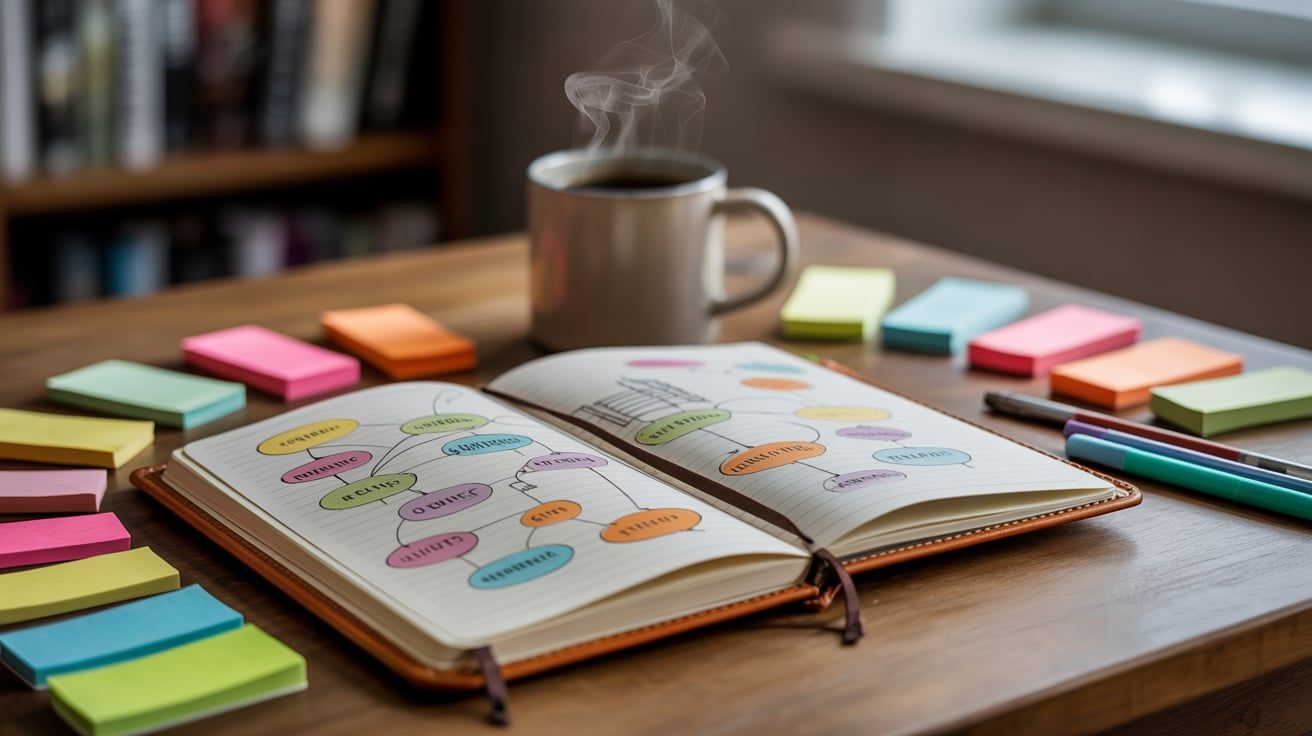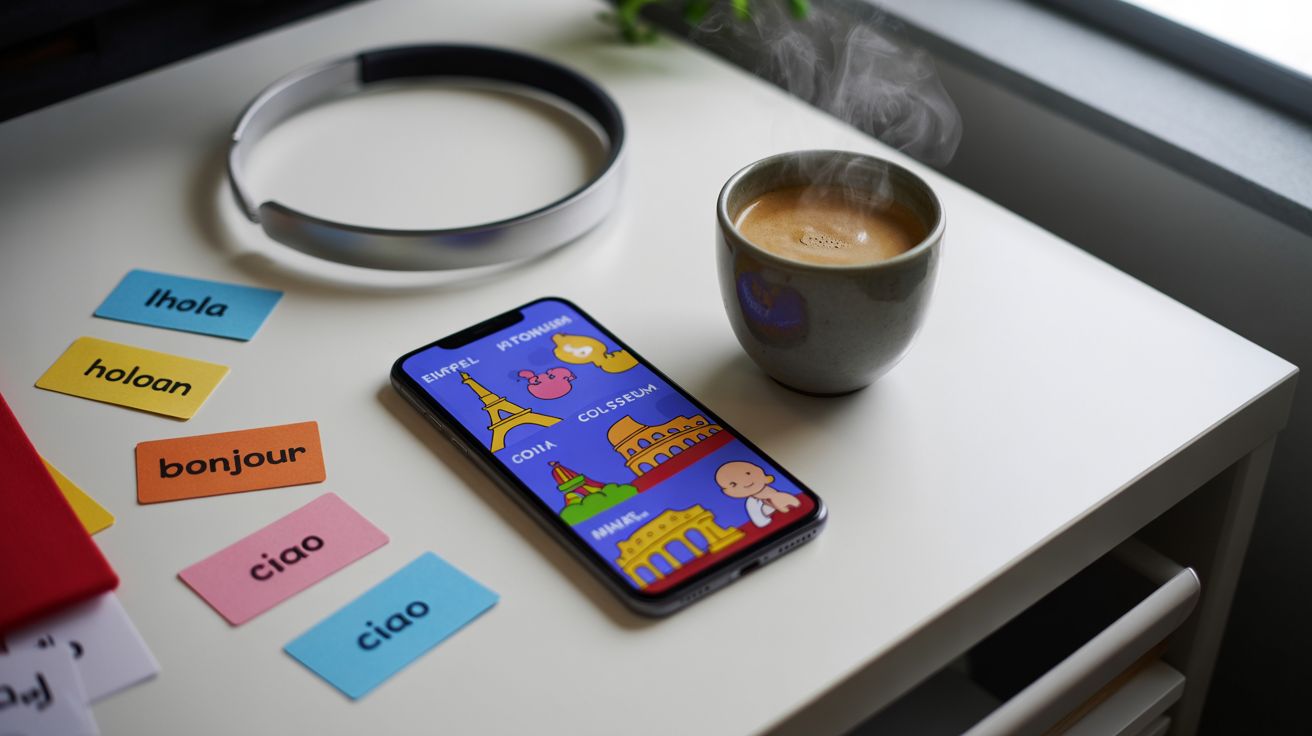
The Note-Taking Nightmare
Remember that feeling? The professor is lecturing, a whirlwind of information cascading over you. You frantically scribble notes, trying to capture every detail, every nuance. By the end of the class, your hand is cramped, your notebook is a chaotic mess of abbreviations and half-formed sentences, and you’re not even sure you understood half of what was said. I certainly do. For years, that was my reality. I tried everything – the Cornell method, outlining, mind maps – but nothing seemed to truly click. My grades were…okay. Passable. But I knew I wasn’t reaching my full potential. I felt like I was just passively absorbing information, not actively engaging with it.
Then, I stumbled upon a different approach, one that completely transformed my learning experience. It wasn’t a widely touted system, no fancy name or pre-printed templates. It was a personalized, iterative process that focused on deep understanding and active recall. And the results? Well, let’s just say my GPA saw a significant boost. I went from a struggling student to someone who genuinely enjoyed learning and excelled in my courses. This isn’t just about better grades; it’s about developing crucial skills and a deeper understanding of the world around you.
Active Recall: The Secret Weapon
The core principle behind this method is active recall. Instead of passively copying down information, you’re actively trying to retrieve it from your memory. Think of it like this: reading a book is like watching a movie; you’re entertained, but you’re not really engaging. Active recall is like acting in the movie; you have to understand the script, embody the character, and actively participate in the story. This active engagement is what solidifies the knowledge in your mind.
So, how do we implement active recall in our note-taking? It starts with a shift in mindset. Instead of trying to write down everything the professor says, focus on capturing the key concepts and ideas. Leave plenty of space in your notes. After the lecture, take some time to review your notes and, without looking at them, try to recall the main points. Write down what you remember in the spaces you left. Then, compare your recall with your original notes and identify any gaps in your understanding. This process of actively retrieving and then verifying is incredibly powerful for learning.
The Two-Column Technique: Structure for Success
To facilitate active recall, I use a simple two-column technique. Divide your notebook page into two columns. In the left column, write down the main concepts, keywords, and questions that arise during the lecture. This column is your initial capture of the information. Keep it concise and focused on the core ideas. Think of it as the “seed” of your knowledge.
The right column is where the magic happens. This is where you’ll actively recall and elaborate on the information from the left column. After the lecture, cover the right column and, using only the keywords and questions in the left column as prompts, try to explain the concepts in your own words. Write your explanations in the right column. This forces you to actively retrieve the information and connect it to your existing knowledge. It’s not just about memorization; it’s about understanding.
Elaboration: Connecting the Dots
Elaboration is the process of expanding on your initial notes and connecting them to other concepts and ideas. It’s about building a web of knowledge, rather than just memorizing isolated facts. After you’ve completed the active recall phase, take some time to elaborate on your notes. Ask yourself questions like: How does this concept relate to something I already know? What are some real-world examples of this concept? How could I apply this knowledge in a practical situation?
For example, if you’re learning about the concept of “supply and demand” in economics, you might elaborate by thinking about how it applies to the price of gasoline or the availability of concert tickets. By connecting the concept to real-world examples, you’re making it more meaningful and memorable. This process of elaboration not only deepens your understanding but also helps you develop critical thinking skills.
Spaced Repetition: The Power of Timing
Spaced repetition is a learning technique that involves reviewing information at increasing intervals over time. The idea is that by spacing out your reviews, you’re forcing your brain to work harder to retrieve the information, which strengthens the memory trace. Think of it like building muscle; you don’t just lift weights once and expect to get stronger. You need to consistently challenge your muscles over time to see results.
After your initial active recall and elaboration, schedule regular reviews of your notes. Start with a review the next day, then another review a few days later, and then another review a week later. As you become more familiar with the material, you can increase the intervals between reviews. There are many apps and tools that can help you implement spaced repetition, but even a simple calendar reminder can be effective. The key is to be consistent and to actively engage with the material each time you review it. This is crucial for long-term retention and the development of lasting knowledge.
Personalization: Tailoring the Method to You
This note-taking method is not a one-size-fits-all solution. It’s a framework that you can adapt and personalize to fit your own learning style and preferences. Experiment with different ways of organizing your notes, different types of questions to ask yourself during elaboration, and different intervals for spaced repetition. The most important thing is to find a system that works for you and that you can consistently stick to.
For example, some people prefer to use color-coding to highlight key concepts, while others prefer to use diagrams and mind maps to visualize the relationships between ideas. Some people find it helpful to review their notes with a study partner, while others prefer to study alone. There’s no right or wrong way to do it. The key is to be mindful of your own learning process and to make adjustments as needed. This personalized approach will not only improve your note-taking skills but also enhance your overall learning experience and boost your education.
Beyond the Classroom: Skills for Life
The benefits of this note-taking method extend far beyond the classroom. The skills you develop – active recall, elaboration, critical thinking, and self-directed learning – are valuable assets in any field. In the workplace, you’ll be able to quickly grasp new information, solve complex problems, and communicate your ideas effectively. In your personal life, you’ll be able to make more informed decisions and pursue your passions with greater confidence.
Learning how to learn is one of the most important skills you can acquire. It’s the foundation for lifelong learning and personal growth. By mastering this note-taking method, you’re not just improving your grades; you’re investing in your future. You’re developing the skills and knowledge you need to thrive in a rapidly changing world. This is about more than just education; it’s about empowerment.
Unlock Your Learning Potential
This note-taking method transformed my academic life, and I believe it can do the same for you. It’s not a magic bullet, but it’s a powerful tool that can help you unlock your learning potential. By actively engaging with the material, elaborating on your notes, and using spaced repetition, you can deepen your understanding, improve your retention, and develop valuable skills that will serve you well throughout your life.
So, give it a try! Start with one class and see how it goes. Experiment with different techniques and find what works best for you. Don’t be afraid to make mistakes and learn from them. The journey of learning is a continuous process of discovery and growth. And remember, the goal is not just to get better grades, but to become a more effective and engaged learner. What new skills will you acquire? What new knowledge will you unlock? The possibilities are endless. Now, go forth and conquer your learning goals!



